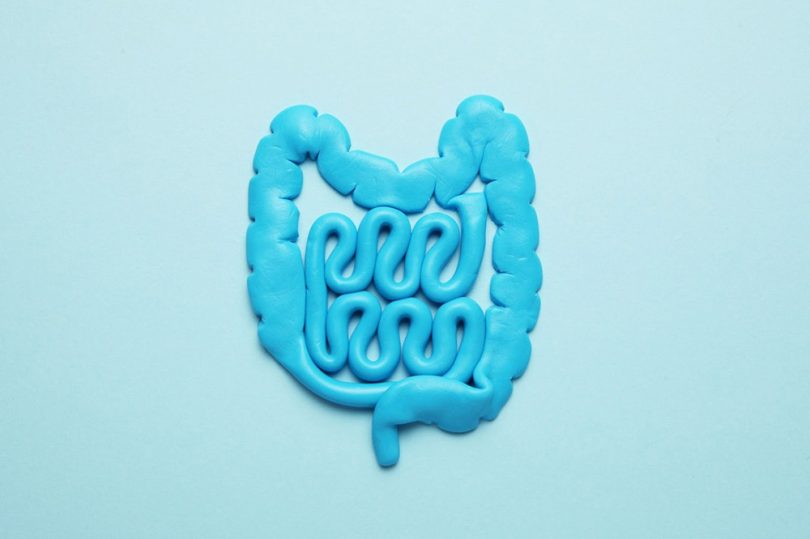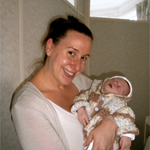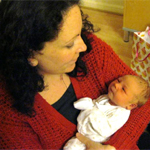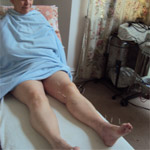Can acupuncture help with gut issues? We’ve got all the science-backed answers
Gut health has been attracting a lot of attention over the past couple of years and when you think about it, it’s for good reason.
It’s thought as many as 40% of the UK population* suffer from at least one symptom of a digestive problem at any one time, which can negatively impact a person’s quality of life.
If you’re included in this percentage, you’re probably looking for solutions to help rid your tummy troubles (whether it’s Crohn’s disease, irritable bowel syndrome or functional dyspepsia) — and if that’s the case, stick right here. We’ve delved into the science and answered just how acupuncture can help with gut issues.
But first, what is your gut?
Along with breaking down the food you eat, your gut works hard to absorb all the nutrients that support your body in its basic everyday functioning.
Your gut is often called the ‘second brain’ and refers to your gastrointestinal tract which is made up of your mouth, pharynx (throat), oesophagus, stomach, small intestine, large intestine, rectum and anus.
A recent survey found that an average gut measures in at a whooping 22–30 feet long and it’s home to trillions of bacteria, viruses, yeasts and other microorganisms, which is known as your gut microbiota. Recent research has found that your gut microbiome can affect just about every organ in our body.
How do you know if you have an unhealthy gut?
“Well, as the old saying goes, it’s important to listen to your gut,” Osteopath Denise Callaghan says. “If you’re suffering with constipation, diarrhoea, stomach cramps and/or bloating, it’s possible you might have an imbalance in your gut.”
Research has shown that in extreme cases, having a gut imbalance can lead to chronic diseases, such as inflammatory bowel disease and irritable bowel syndrome (IBS). But here’s the good news: thankfully, there are a range of ways in which you can boost the health of your gut.
How can you improve your gut health?
A small number of studies have found that prebiotics in food and supplemental form (like those green powders you’ve probably spotted all over social media) can work to regulate gut inflammation and help to alleviate constipation.
While it’s also widely accepted that increasing fibre intake, lowering stress levels, limiting ultra-processed foods, drinking more water, eating foods rich in polyphenols (like blueberries, plums, cherries, apples and strawberries) and adding more fermented foods to your diet can help.
But there’s another saving grace to add to the list — and that’s acupuncture.
What is acupuncture?
On the surface, you could be fooled into thinking that the art of acupuncture (which uses ‘painless’ needles) would cause you more pain than relief. But it’s quite the opposite. In fact, acupuncture has been used to relieve pain and restore your body’s overall balance for thousands of years.
“Acupuncture works by stimulating certain pressure points within the body,” trained acupuncturist Denise, who is a member of the British Acupuncture Council and The British Medical Acupuncture Council, explains. “The stimulation of these pressure points releases endorphins and allows the free flow of energy to continue.”
The benefits of acupuncture are far and wide reaching. “It can be used for a wide range of ailments from back pain and fibromyalgia to gut problems, too,” Denise adds.
How does acupuncture help with gut issues?
Did you know an entire communication system between the brain and gut exists? This is more commonly referred to as the gut-brain axis. And, as studies have shown, acupuncture is believed to ‘regulate gastrointestinal motility’ through autonomic nerves (which are a network of nerves that extend throughout your head and body).
Meaning? As researchers concluded in this study, acupuncture treatment can be effective for a variety of disorders of gut–brain interaction including the likes of functional dyspepsia, IBS, and functional constipation.
While a trial, published in The Lancet found acupuncture can improve the symptoms and inflammation of those with mild to moderate Crohn’s disease.
Of course, any health issue can be stressful. And a gut one is no different. But that’s where acupuncture really comes into its own.
Clinical studies have shown that this form of alternative medicine may specifically benefit stress/anxiety disorders as it’s believe to stimulate the nervous system and cause the release of neurochemical messenger molecules. The resulting biochemical changes influence the body’s homeostatic mechanisms, and in turn, reduce sensitivity to pain and stress and promote relaxation.The calming nature of this alternative treatment is therefore believed to decrease the heart rate, lower blood pressure and relax the muscles.
While if you have a little one whose ‘tummy hurts’, Denise has a diploma in Paediatrics from The College of Integrated Chinese Medicine after undergoing an intensive one-year course that saw her master the art of Tui Na and Shonishin.
The former focuses on approximately 100 acupoints, lines and areas (most of which are particular to children) and uses a practitioner’s hands to stimulate these points through massage to promote balance and harmony within the body.
While the latter is referred to as acupuncture for kids, however it does not use needles and is pain-free.
Go with your gut
Denise has more than 35 years’ of experience in the field and uses an array of different osteopathic techniques including the practice of Traditional Chinese Acupuncture. She studied at the British College of Acupuncture before travelling to China to perfect her technique.
If you are troubled by any of these problems, or you or your child are in pain, please don’t suffer in silence. Book in for a treatment today or drop me an email to find out more how acupuncture could help you and your gut!
*https://www.nutritionist-resource.org.uk/articles/digestive-problems.html





















